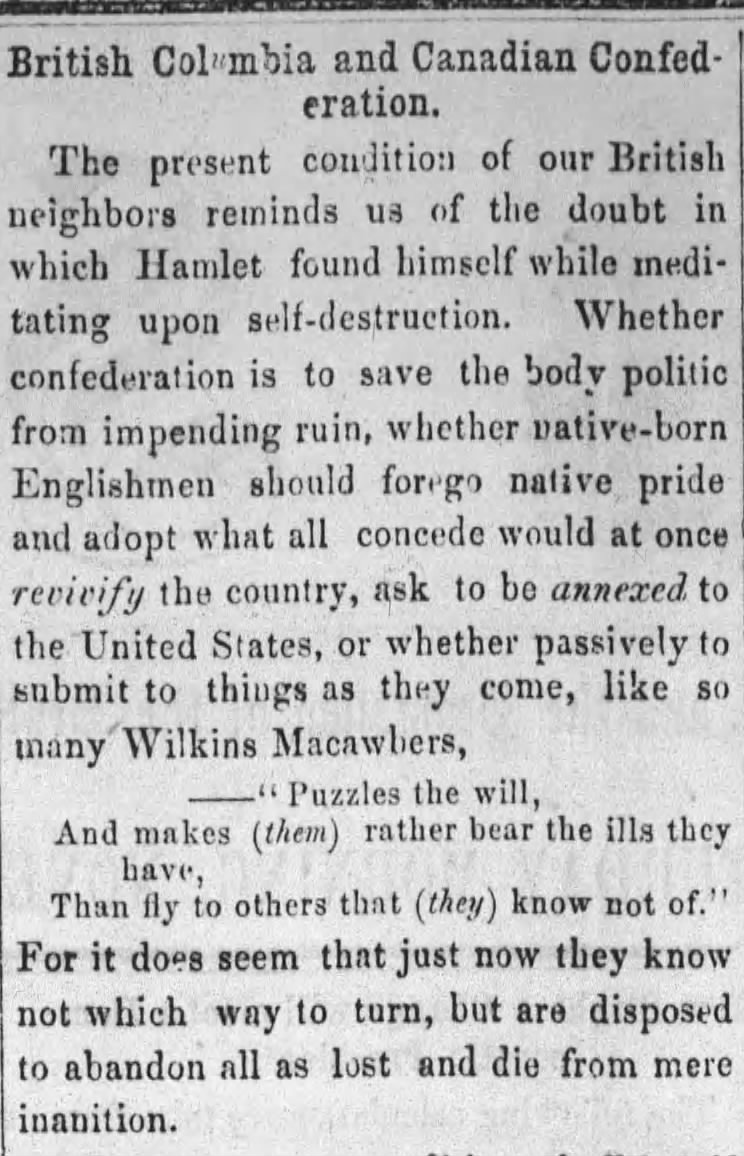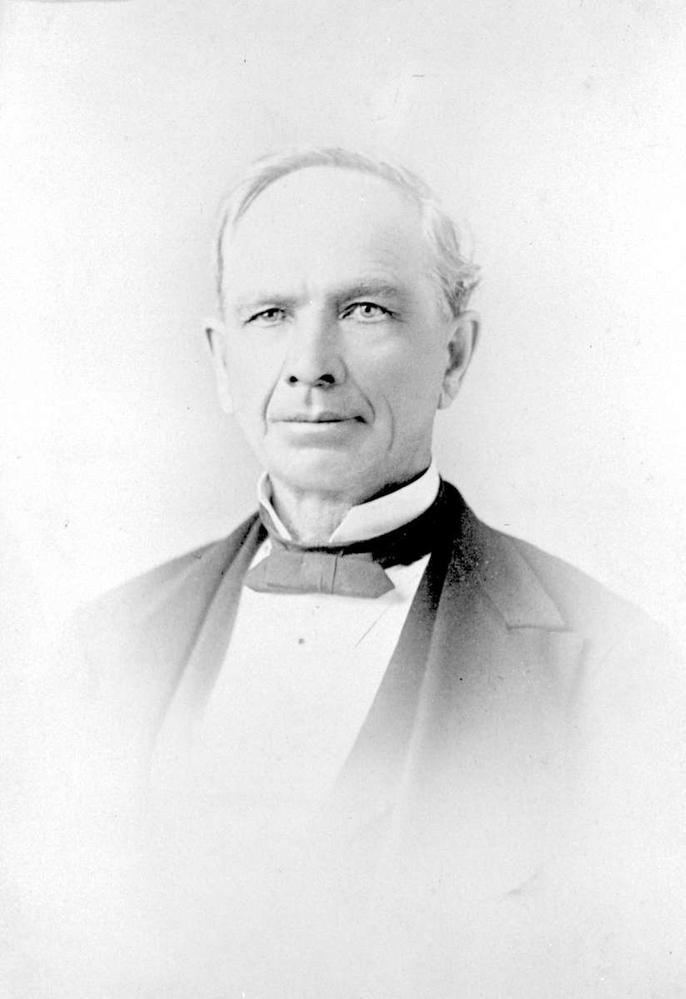Annexation or Confederation?
It didn’t take long for Trump’s “51st State” comments to go from joke to intention. Triggering an economic collapse that leads to annexation seems to be the goal. As others have pointed out, this is not the first threat of invasion that Canada – or British North America before it – has experienced. In both the past and present, talk of annexation is driven by a combination of economic uncertainty, political ambition, and fervent ideology (such as manifest destiny and settler colonialism).
Three Choices
In March 1867, Queen Victoria signed the British North America Act to create the Dominion of Canada. That same month, negotiations were finalized for the United States to purchase Alaska from Russia for $7.2M. People living in BC had considered joining either Canada or the USA before, but these events generated much more serious discussion. Essentially, British Columbia’s colonial government had three options:
- Remain a colony.
- Be annexed by the USA (by choice or perhaps by force).
- Join Confederation with Canada.

The Washington Standard, 9 November 1867
Among many long-time settler leaders, joining Canada was not necessarily the preferred option. Loyalty to the Crown and concern over being able to collect colonial pensions made the status-quo an attractive option. For others more recently arrived from the eastern colonies, Canada was the clear choice.
Annexation also had its appeal; Canada was new and far away and US tariffs made trade on the coast costly. Americans may not have been sitting as colonial legislators, but they were a strong presence in early Victoria. For example, the American Hotel, built in 1859, was noted for flying the American flag and celebrating George Washington’s birthday.

Lincoln’s Man in Victoria
In 1862, President Abraham Lincoln appointed family friend Allen Francis to be US Consul to Victoria. Through correspondence with his superiors in Washington, D.C., Francis portrayed a colonial population fed up with its unambitious leaders and suffering from economic decline:
>
Writing in 1988 in the academic journal BC Studies, Charles John Fedorak argued that Francis exaggerated his claims as part of a political miscalculation – he overestimated the desire of the US government to support annexation during and immediately following the Civil War.Every natural resource, in fact, which now lies dormant, would be stimulated into activity, and instead of witnessing the Island becoming gradually but surely depopulated, — an expense without an equivalent to Great Britain, — the inhabitants would have the gratification of seeing capital and labor flowing in, and industry replacing the present listlinesses.

Several petitions in support of annexation did circulate through the colony during the 1860s. In 1869, 104 Victoria businessmen wrote to US President Ulysses S. Grant and asked him to annex the colony. Provincial Archivist Willard E. Ireland researched the petition in 1940 and explained that the majority of signatories were not even American, but rather German and Eastern European – what Ireland called a “curious blend of prominent and public-spirited businessmen and inconsequential characters of doubtful reputation.” Economic uncertainty – whether real or perceived – is the theme for most of the clauses in the 1869 petition.
Brent Holloway argues that the annexationist movement in Victoria and BC gained little sustained influence locally, but its portrayal as widespread in official correspondence and US newspapers allowed it to “profoundly and perhaps inadvertently affect policy on a regional and global level.” American expansionists used calls for annexation as proof that their approach to growing the US territory was welcomed. To put it another way, they believed they would be greeted as liberators. For officials in London overseeing the British colonies, the supposed influence of the annexationists redoubled efforts to bring BC into confederation with Canada.
![Screenshot of The British Colonist newspaper for 24 November 1869. Article titled "The Annexation Movement." The text reads "In the Olympia [W.T.] Tribune of Saturday is published the Annexation Petition, which a score or so of people were thoughtless enough to address to President Grant. The editor of the Tribune has evidently been mislef with regard to the magnitude of this ludicrous movement..."](https://assets.buttondown.email/images/2a1aeba0-ee0c-473d-9872-006528895636.png?w=960&fit=max)
British Columbia joined Canada in 1871. On February 22nd, 1872, the American Hotel celebrated George Washington’s birthday; perhaps the patrons continued to debate the merits of confederation and annexation. I like to think that they also celebrated as neighbours and friends. Today, the context for annexation rhetoric coming from the United States is different than it was in the 1860s. What remains similar is the question BC’s colonial government wrangled with in the 1860s: What is the future that we want?